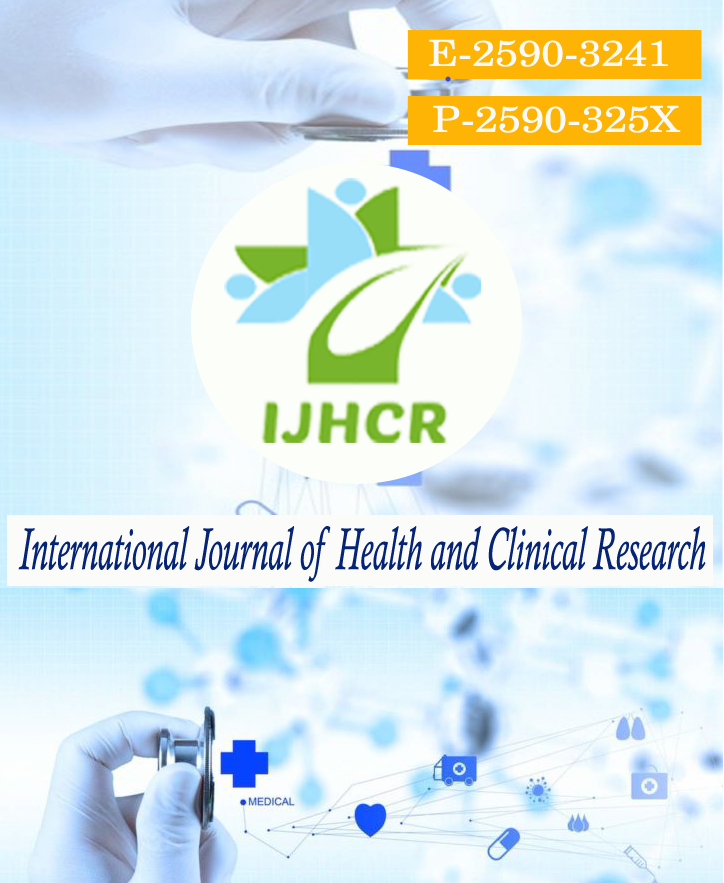
International Journal of Health and Clinical Research
Yazarlar: Asha Rangadham, Aparna SH, KV Sagar
Konular:-
Anahtar Kelimeler:Erythrocyte sedimentation rate,C,Eactive protein,LR,Periprosthetic joint infection,Total knee arthroplasty,Osteoarthritis
Özet: Background:To evaluate the prevalence of preoperatively elevated serum inflammatory markers and to determine its association with periprosthetic joint infection (PJI) in patients with osteoarthritis (OA) undergoing arthroplasty of knee and hip.The study also evaluated the effect of the pre and postoperative factors associated with prolonged postoperative hospital stay.Methods:The study involved patients who underwent primary arthroplasty of knee and hip from May 2018to September 2019. Patients with medical emergencies, open wounds, polytrauma with other system involvement and who had intra-articular steroid injection in last 2 months prior to surgery were excluded.Inflammatory markers were documented during preoperative evaluation. All necessary data were collected retrospectively and documented. The data were analysed using R software (version3.6.1).Results:The study involved52patients with amale-to-female ratio of0.625 and the mean age of 59.81±11.67 years. Thirty-six (69%) patients had one or more preoperative comorbidities. High preoperative levels of CRP and/or ESR were found in thirty-seven (26.62%) patients. Two (3.85%) patients developed PJI and were treated successfully. Mean hospitalization time of patients was 13.38±5.76 days.No other complications were noted.Conclusion:No significant link between high preoperative ESR and CRP and the occurrence of PJI was noted. Nevertheless,preoperative NLR,levels of alkaline phosphatase,and hemoglobin, and types of surgery performed were found to be helpful in assessing the length of postoperative hospital stay. Keywords: erythrocyte sedimentation rate, C-reactive protein,NLR, periprosthetic joint infection, total knee arthroplasty, osteoarthritis